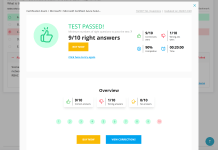
Having a good learning environment is also very important to students who would like to perform well in school. As a student in high school, university, or advanced learning institutions, the learning environment you learn under will dictate how far you will progress in learning and memorization. In this article, we will outline how to attain a good learning environment to motivation, concentration, and assignment help.
For many students, achieving academic excellence can sometimes feel challenging. Balancing assignments, coursework, exams, and social life can be overwhelming. However, cultivating the right learning environment can make all the difference. If you’re struggling with assignments or need guidance, seeking assignment help can also be beneficial, but let’s first focus on how to optimise your learning space for academic success.
Understanding the Importance of a Positive Learning Environment
Prior to discussing strategies on how to develop a successful learning environment, it’s critical to know why a successful learning environment matters. A healthy learning environment for scholars is greater than a cozy physical environment; it’s the attitude, content, and social interaction within the environment.
A learning and positive environment can:
- Improve attention and concentration.
- Decrease stress and tension due to homework or exams.
- Improve better communication between teachers and students.
- Encourage motivation and enthusiasm for learning.
- Boost productivity and time management.
Regardless of where you are—home, library, or classroom—having your space support these areas is at the heart of your academic achievement as a learner.
Key Aspects of a Healthy Academic Learning Environment
Achieving and sustaining a healthy academic learning environment takes some key aspects. Let’s group these factors and then observe how they can optimize your learning experience as a whole.
1. Set Up Your Space for Maximum Effectiveness
The first thing to do in preparation for a learning-friendly environment is to wash your study table. Your study table must never be dirty or messy because it will be a source of unnecessary diversion and will distract from concentration.
Rules on how to remain clean are elaborated below:
- Clean out at times: Use only the required materials for the task. They are textbooks, stationery, and equipment.
- Designate a specific study area: Where possible, designate a specific home study area. This will differentiate study time from entertainment or recreation time.
- Use organisational tools: Utilise folders, organisers, and labels to categorise the material. Electronic organisers such as task lists, calendars, and to-do lists can be utilised in an effort to be ahead of work.
Having a tidy and clean study area not only keeps you in the zone but also has an in-control, tidy feel, which lowers stress levels.
2. Avoid distractions
Distractions will probably be one of the biggest obstacles to learning efficiently. Whatever it is that engrosses you on social media, TV, or noisy surroundings, these distractions will suck your attention and lower productivity. If you find yourself struggling to stay focused on assignments, seeking assignment help can provide the guidance you need to stay on track.
To prevent distractions:
- Set your phone away from you or use software that silences notifications while you study.
- Study in a quiet room if available, or earplugs to mask the noise.
- Study at a consistent time to get into the routine and avoid procrastination.
- De-distraction helps in concentration to do assignments earlier.
3. Create A Nice and Comfy Space
A positive learning atmosphere isn’t something to do with sitting quietly and being neat—it’s something to do with being comfortable, as well. If you’re uncomfortable during the time that you’re learning, then most likely you’re not going to be so effective or productive.
Some of the ways you can stay comfortable are as follows:
- Good lighting: Natural lighting is ideal, but otherwise, have some warm, soft artificial light that won’t hurt your eyes
- Good furniture: Purchase an ergonomic chair that promotes good posture. Do not study in bed since it will likely relax you, and not focus.
- Temperature: Heat the room such that it is comfortable but neither hot nor cold since it disrupts concentration.
- Personalisation: Decorate walls or table tops in the room with personal things like plants, paintings, or inspirational quotes which personalize the room and warm the room.
The peaceful atmosphere makes you awake and alert, and you can focus more on studying.
4. Healthy Routine
A healthy learning environment is not just about the environment but also about your health. Having some kind of routine to get your mind and body ready for learning is very crucial.
Some points on having a healthy routine are:
- Sleep properly: Sleeping is essential to the storage of nutrients and repair of the brain. Try your best to get at least 7-8 hours of sleeping a day.
- Nutritious eating: A brain that is properly nourished thinks better and provides more energy. Avoid too much caffeine or sweets, which provide short-term energy but tend to lead to a crash.
- Physical exercise: Physical exercise enhances mood, energy, and concentration. Take a fast walk to calm your mind and relax.
- Take Regular Breaks: Experiments have also proven that efficiency is boosted through working in blocks of 25-30 minutes after every set of breaks. It is an extremely efficient approach, popularly referred to as the Pomodoro technique, of sustaining focus.
Developing positive habits lends good shapes to mind and facilitates energy transferance of the body and to become one efficient in the long term.
5. Develop Healthy Friend and Teacher Relationships
One of the prettiest things about any classroom environment in a school are the individuals around you. Getting along with teachers and friends actually serves you well as a student.
Here’s what you do:
- Join a study group: Working with classmates can help you grapple with difficult material, lighten the load, and give you that nice sense of belonging in a team environment.
- Talk to instructors or teachers: Don’t hesitate to talk to your teachers to ask a question or find out more about assignments. They exist to educate you.
- Join class discussion: Talking about stuff in an academic setting not only improves your know-how, but learning is also fun.
- Leave good comments: Leaving a comment for other students can help everyone learn better.
A motivating, encouraging group of people will be able to make you study harder and accomplish your learning objectives.
6. Good Study Techniques
Good learning environment is also followed by the use of good study techniques that allow one to learn. Best study habits to learn assist you in getting ahead of course work and are less stressful at exam times.
Good learning skills are:
- Active recall: Don’t read passively off notes but attempt to pull items out of memory. It is better stored and to understand better.
- Spaced repetition: Divide your study material into small chunks and review themspaced out for long-term memory recall.
- Mind mapping and summarisation: Summary points or mind maps are visual reminders which aid to cement tricky facts, better understood.
- Use mnemonic aids: Acronyms or mnemonics are used to assist you to remember difficult facts or lists.
Following these study tips, you will learn more effectively and reduce exam cramming.
How Assignment Help Can Enhance Your Study Environment
There will be circumstances where, no matter how many efforts are made in an attempt to create the best study environment, there will be students who just won’t get assignments done right. If you’re having trouble with one assignment, you could very well utilize professional assignment assistance.
Professional assignment assistance can:
- Offer professional guidance for difficult issues.
- Assist in developing research and writing ability.
- Offer constructive criticism of the work.
- Academize your work in content.
By establishing an appropriate learning environment and backing it up with quality assignment assistance whenever needed, you are laying down a foundation for academic achievement.
Conclusion
A conducive and healthy learning atmosphere is the pathway to academic success. From keeping where you study tidy to having an uninterrupted calendar, all these make you an integrated learner and become capable of concentrating and working at your best. And enjoying a healthy relationship with your peers and teachers adds to this kind of learning atmosphere and gives you a cooperative as well as congenial learning atmosphere.
And with a little bit of proven-and-tried techniques of learning, your mental comprehension can take another step further, to allow you to be capable of working more easily with the subject matter. And where there is a call for guidance in the right direction, then assignments services such as Assignment in Need (assignnmentinneed.com) will establish the pace of professional mentorship that can assist you in being capable of conquering difficult assignments and ensure academic accomplishment.
By incorporating all these aspects, you can develop a study life that not only signifies academic achievement but also gives you a delightful learning experience.








